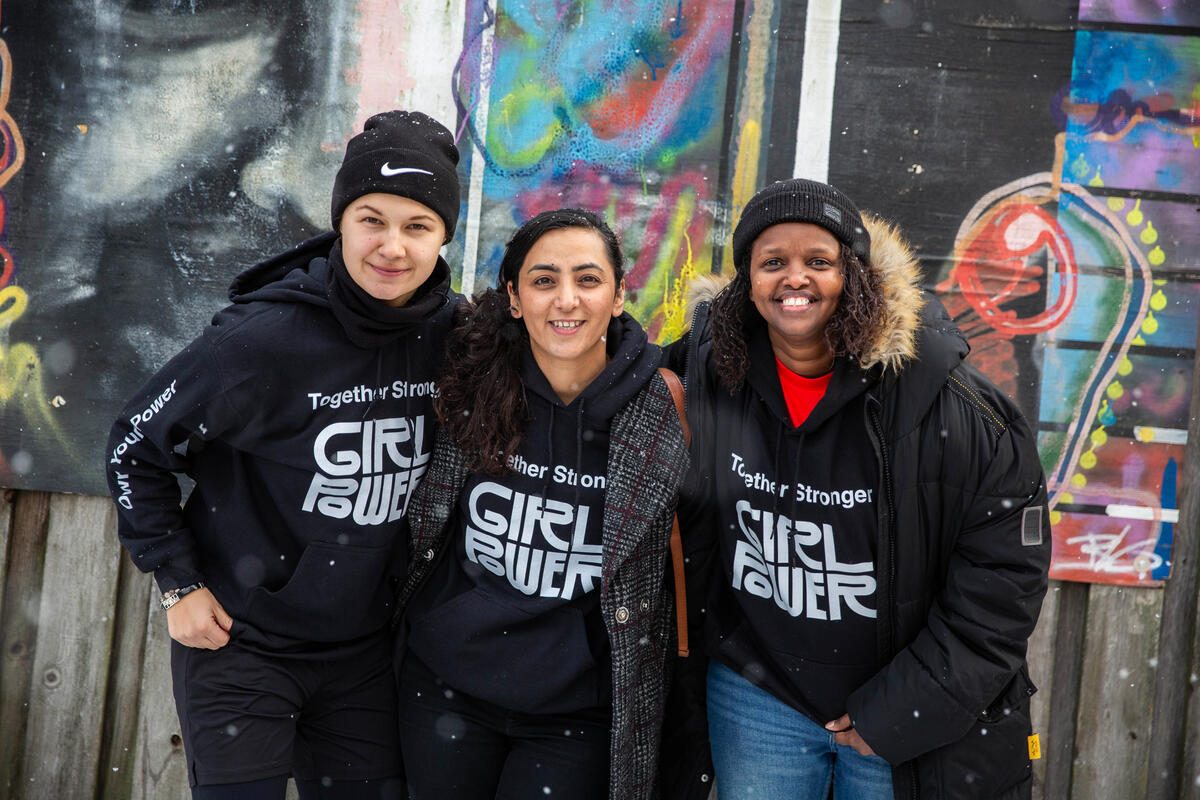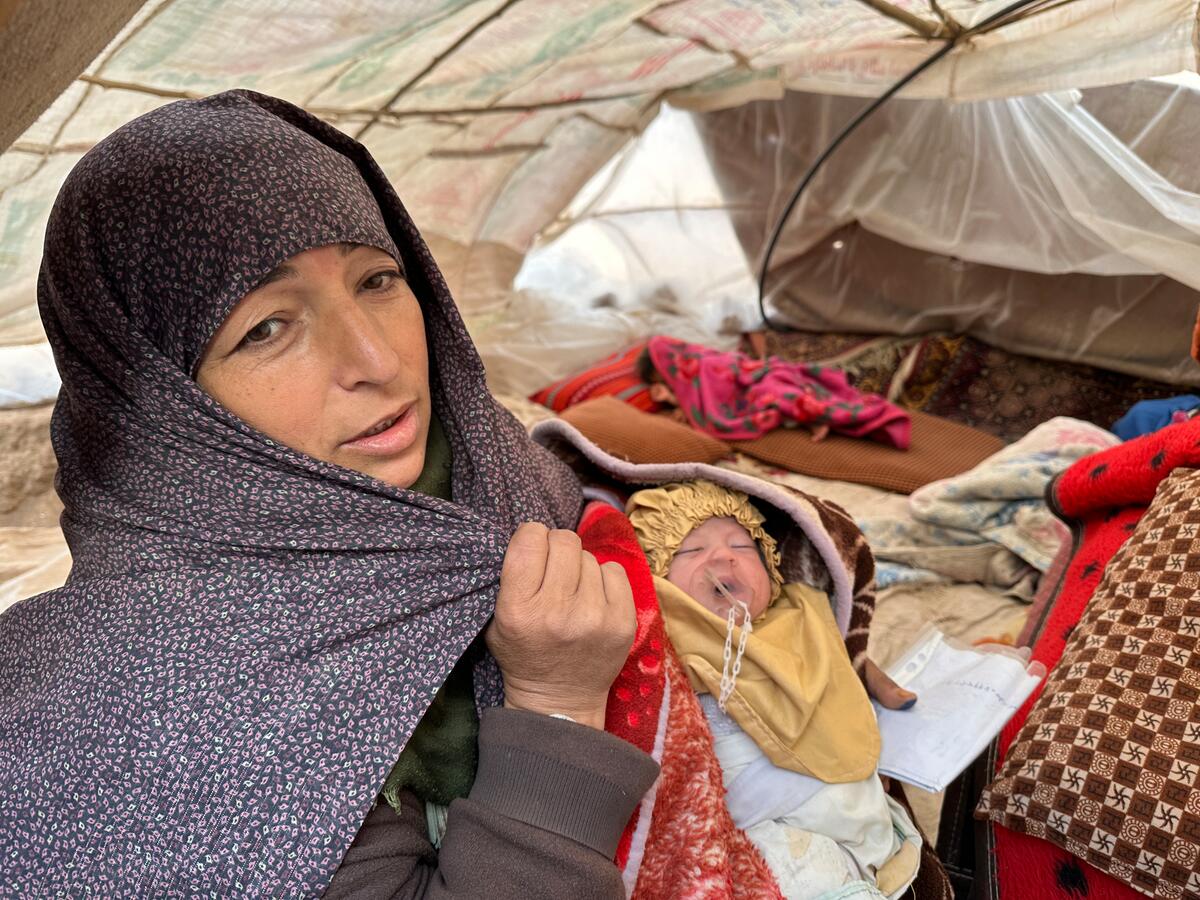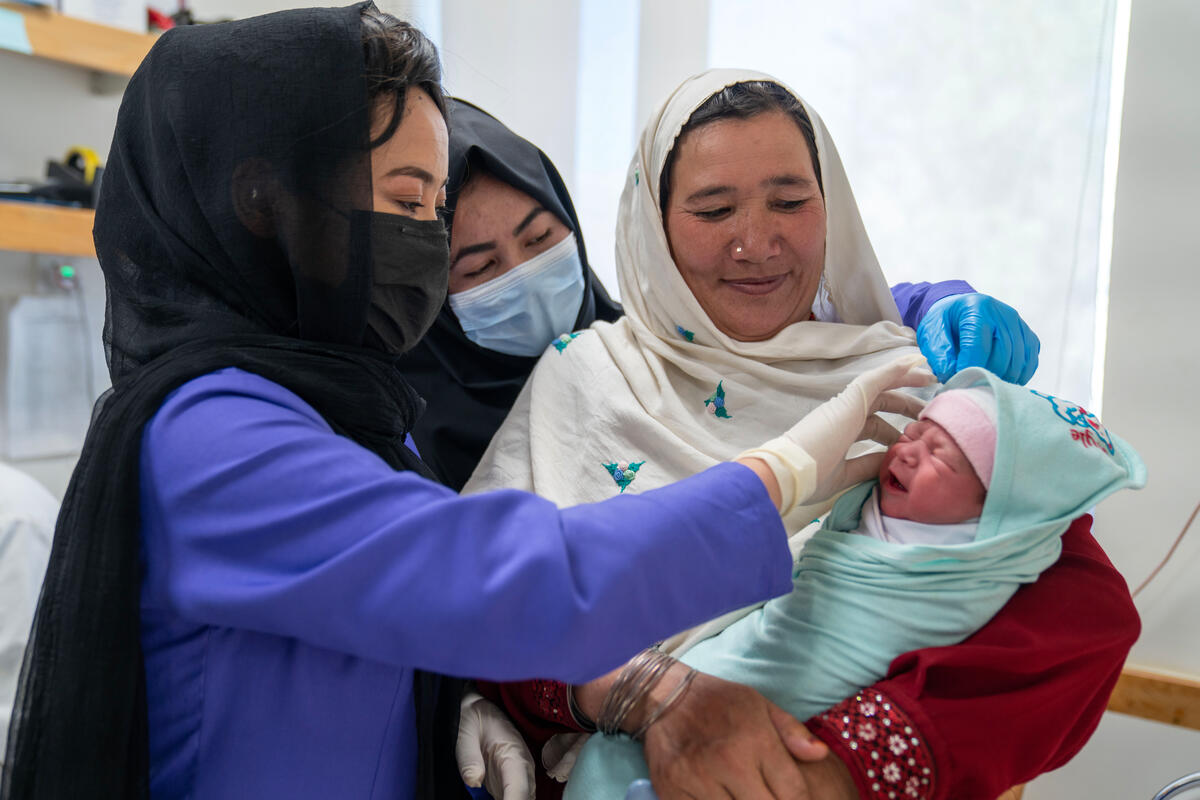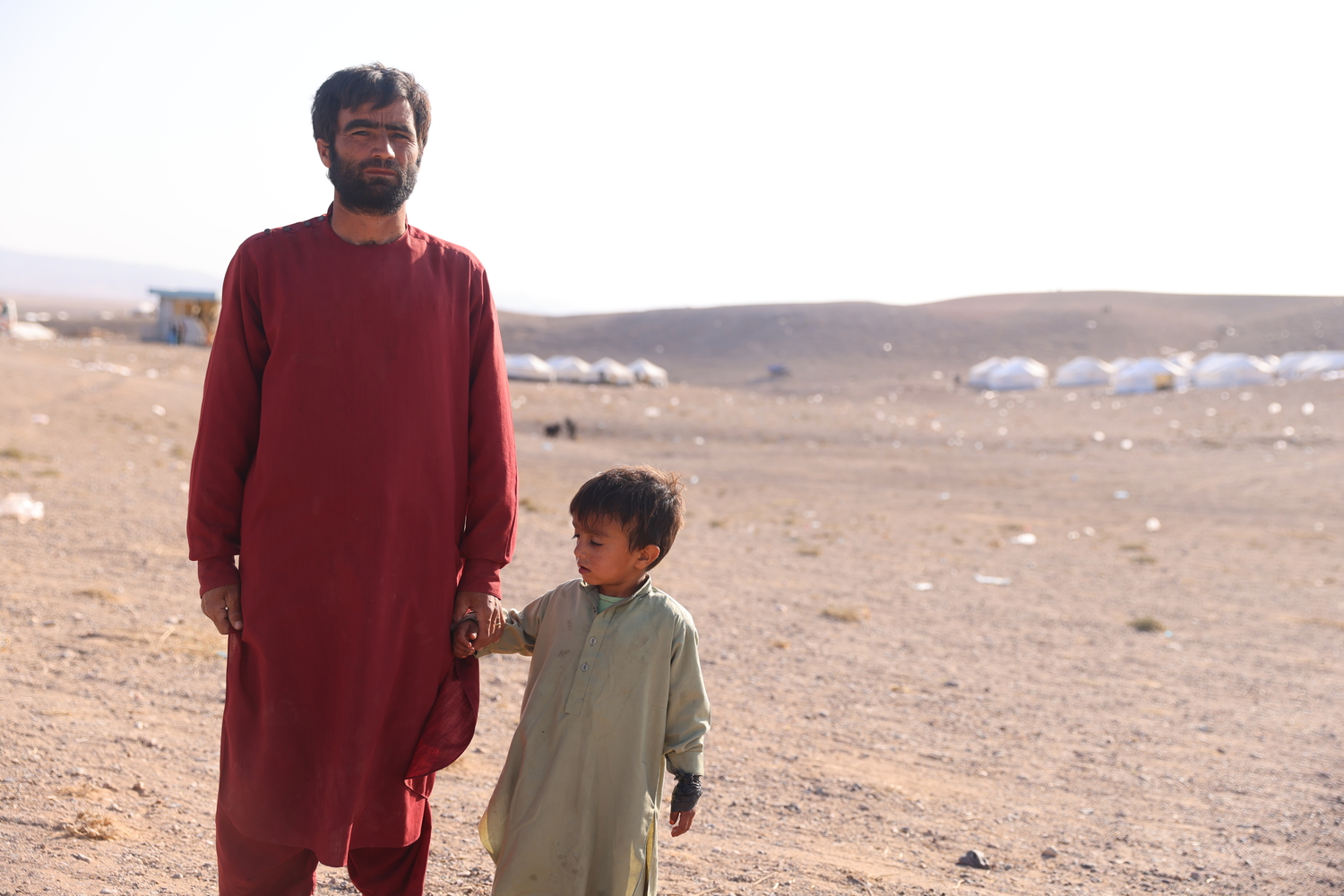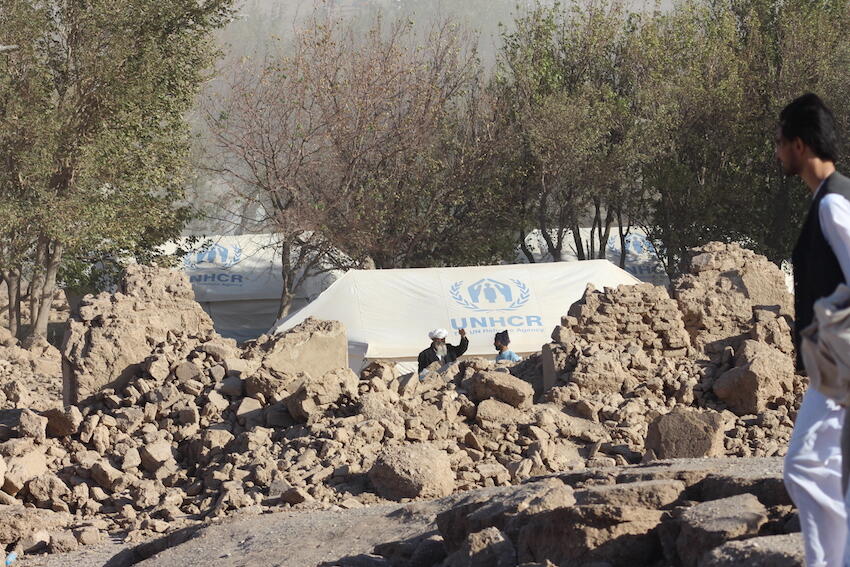Afghans bid farewell to Islamabad
Afghans bid farewell to Islamabad
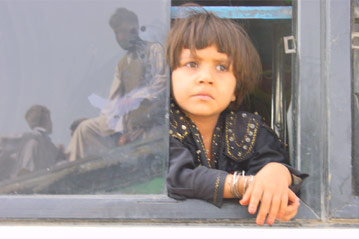
ISLAMABAD, Pakistan (UNHCR) - By the time the first rays of sun catch the mud-walled houses of Islamabad's slums, crowds of Afghan refugees have already gathered outside the UNHCR Voluntary Repatriation Centre (VRC) to seek help in getting back to their homeland.
Rows of brightly-painted trucks rented by refugees are lined up in a field, piled high with the belongings of people who have spent up to 22 years in the Pakistani capital. These are the refugees who are awaiting final verification by the UN refugee agency to confirm them as returnees before heading immediately for the Afghan border.
Milling about the land between the trucks and a two-storey building are thousands of Afghans awaiting an initial interview to verify them as legitimate returnees and provide them with the papers required to get payment for their transportation. They will be the ones on the trucks in the coming days.
"I have something like 100 trucks here right now that I am trying to process," Jadranko Bjelica, the UNHCR officer in charge of the Islamabad VRC, shouts into a mobile phone, seeking extra Pakistani police to control the crowd. "There are 5,000 people outside."
Among the crowd is Saknia Abdul Mir, a 30-year-old mother of five. "Now that the people are going back to Afghanistan, I want to go as well. I was a child of eight when I came from there and I have never been back," she says.
Mir, whose husband is working as a day labourer as she registers the family for repatriation at the VRC, says they will survive working as farm labourers once they return to their home in Nangarhar province. She adds: "Nowadays Afghanistan is stable. We will see. But once there we will never come back here."
Such optimism has driven the number of Afghan returnees far above expectations. Less than five months after the start of the voluntary repatriation initiative, more than 1.2 million Afghans had returned home from Pakistan. This is three times what UNHCR had expected for the whole year. So far the agency has registered 150,000 from Islamabad and adjoining Rawalpindi alone.
The obvious question - how many still remain? - cannot be answered easily. The Pakistani government is about to start a census to determine how many Afghans live in the teeming slums that spread over the wasteland between Islamabad and Rawalpindi. UNHCR has estimated the population at 250,000, but there are no firm figures.
What is clear is that large numbers of refugees are hopeful that Afghanistan has finally turned the corner on its turbulent past. Despite the difficulty in returning, many Afghans have concluded that life back home will be better than remaining on the margins of Pakistani society.
"Here we live in poverty. When we earn money the police stop us and take it," says 25-year-old Gul Mohammed, who has been in Pakistan since he was 10.
"All our relatives have gone back to Afghanistan, there is no one left here," he adds while registering his mother, three siblings and his own three children for Kabul. "I want to join the new Afghan army; that would be a good job."
Pakistan also would like the refugees to return to Afghanistan as soon as possible. Most of the returnees have come from urban areas, where they are an under-class that is more visible than those in the refugee camps. The call for Afghans to leave is loudest in the Pakistani capital.
UNHCR, as it does with other Afghans, is not advising refugees in Islamabad to return. Despite the huge numbers who have chosen to go home, there are still problems of security in many areas of their homeland. And some refugees - such as those linked to the communist governments of the 1980s, women who have offended local traditions, or vulnerable ethnic minorities - may never be able to return.
But since such huge numbers have concluded it is safe to return, the refugee agency has had to mount a larger programme than expected. Of the 11,000 refugees going home from Pakistan daily, about 15 percent are from the capital. By July, some 1,800 people a day were returning from Islamabad alone. Extra staff from UNHCR and its implementing partner, The Society for Human Rights and Prisoners Aid (SHARP), have been sent to reinforce the registration team.
Teams move along the trucks checking to see that those departing correspond to those registered in the initial interview. Each person is checked against a photo provided earlier and, once verified, must dip a finger in indelible ink.
Outside the building, those awaiting the interview overflow from the tent erected to provide shade. They are admitted inside in small groups for one-on-one interviews with staff checking to make sure they are not people who have already received assistance to return.
The money paid for transportation, $20 per person, has tempted some people to try a second time. Each refugee family must provide two photos showing all members planning to return. Circulating the photos among the staff is surprisingly effective at spotting "recyclers" - about seven percent are rejected in Islamabad.
As part of Pakistan's efforts to make sure the departing Afghans do not reappear in the capital, those approved by UNHCR must go to the local authorities and identify the house they plan to leave behind when they load up their trucks one or two days later.
As loaded trucks trundle out of the Islamabad VRC carrying families to the Afghan border, Pakistani workmen ready a bulldozer to knock down the mud-walled structures that have sheltered the refugees for years. These Afghans are not coming back.

